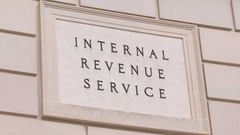 On nearly the eve of its expiration, Congress has extended the ability of high deductible health plans (“HDHPs”) to offer first-dollar telehealth coverage through plan years beginning before January 1, 2025. This will allow participants receiving this coverage to continue to contribute to a health savings account (“HSA") for this purpose.
On nearly the eve of its expiration, Congress has extended the ability of high deductible health plans (“HDHPs”) to offer first-dollar telehealth coverage through plan years beginning before January 1, 2025. This will allow participants receiving this coverage to continue to contribute to a health savings account (“HSA") for this purpose.
Separately, the agencies responsible for enforcing prescription drug reporting have issued good faith relief, an extension, and some additional flexibility in reporting.
BACKGROUND
The Coronavirus Aid, Relief, and Economic Security (CARES) Act (2020) allowed high-deductible health plans to cover telehealth and other remote care services on a first-dollar basis (that is, before reaching the deductible) through the end of 2021. Then, Congress resurrected this relief in April 2022 after a three-month hiatus. This relief was scheduled to end on December 31, 2022 (regardless of a plan’s plan year), but Congress has resurrected it yet again.
Separately, the Consolidated Appropriations Act, 2021 required health plans to report certain information about their prescription drugs and health plan information. The reporting presented significant challenges for employers and their service providers. The agencies have now given some additional relief.
TELEHEALTH: BACK TO THE FUTURE (AGAIN)
As part of its last-minute funding push, Congress slipped this extension into its omnibus funding bill. Under this extended rule, HDHPs will be able to offer telehealth services before the deductible without impacting HSA eligibility through plan years beginning before January 1, 2025.
TELEHEALTH: NON-CALENDAR PLAN YEAR GAP
However, the way the legislation is written, there’s a small gap for non-calendar year plans. The brief resurrection of the relief only applied through December 31, 2022, regardless of plan year. The new extension applies for plan years beginning after December 31, 2022.
For example, an HDHP with a plan year beginning June 1 could not offer telehealth before the deductible for the period from January 1, 2023 through the end of May 2023. Any HDHP that does not have a calendar plan year would have a similar gap between January 1, 2023 and its plan year start.
PRESCRIPTION REPORTING: GOOD FAITH & OTHER RELIEF
As widely requested by lobbying groups, the relevant agencies issued on December 23 additional FAQs that provide good faith and other reporting relief. Specifically:- Plan sponsors and service providers that make a good faith effort to report will not be subject to penalties for any missteps based on a reasonable interpretation of the reporting rules. This is a welcome relief since the difficulties of coordinating information from various sources made it extremely difficult to ensure completely accurate reporting.
- The guidance also provides a grace period through January 31, 2023, under which the agencies will not consider a plan to be out of compliance if a good faith submission is made on or before that date. This is also welcome news for those who were working right up to the deadline to get these reports done. They now have extra time but should work quickly to complete the reporting.
The relief also provided some flexibility for the mechanics of reporting, including:
- Allowing for multiple submissions by the same reporting entity.
- Allowing for more than one reporting entity to submit the same data file type on behalf of the same plan (instead of the multiple entities having to work together to consolidate all the plan’s data into a single data file for each type of data, which was proving difficult).
- Providing increased flexibility regarding the aggregation of reported data.
- Allowing for email submissions (versus required use of the CMS HIOS site) by group health plans that are submitting certain limited data sets. These data sets were the ones employers were most likely to have to report, especially if they had carve-out arrangements for pharmacy. For employers to whom this applies, this should eliminate the need to set up a HIOS account to facilitate that aspect of reporting.
- Making the reporting of certain vaccine information optional.
- Making optional the requirement to report a value for amounts not applied to the deductible or out-of-pocket maximum.
TAKEAWAYS
While the telehealth extension is welcome news, non-calendar year plans should take note of the gap identified above. The IRS may attempt to provide relief through guidance early next year, but in the meantime, those plans should expect to stop making any payments for pre-deductible telehealth coverage.
As for the prescription reporting relief, despite coming at the next-to-last minute, the changes are welcome. Plan sponsors should study the guidance closely and work with their service providers to make any necessary modifications to their reporting strategy.
CONTACT US WITH ADDITIONAL QUESTIONS OR CONCERNS
If you have any additional questions, contact us. Our HUB Advisors, along with our Compliance Practice Leaders, will help you sort things out. You can view more compliance articles in our Compliance Directory.
NOTICE OF DISCLAIMER: Neither JP Griffin Group a division of Hub International, Hub International Limited, nor any of its affiliated companies is a law or accounting firm, and therefore they cannot provide legal or tax advice. The information herein is provided for general information only, and is not intended to constitute legal or tax advice as to an organization’s or individual's specific circumstances. It is based on Hub International's understanding of the law as it exists on the date of this publication. Subsequent developments may result in this information becoming outdated or incorrect and Hub International does not have an obligation to update this information. You should consult an attorney, accountant, or other legal or tax professional regarding the application of the general information provided here to your organization’s specific situation in light of your or your organization’s particular needs.


















